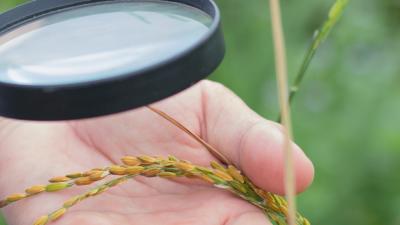
New technologies to improve health and safety performance
Discovering Safety joins forces with Safetytech Accelerator to build a Smarter Regulation Sandbox.
This page is approximately a 3 minute read
This page was published on

Traceability is a fundamental cornerstone of any robust food system. It underpins the claims on the product and gives reassurance to the end-consumer about its quality and safety. Traceability enables the food industry to meet regulatory requirements, provide food assurance, and carry out prompt product recalls when required. The requirement for traceability has increased significantly across all food groups following major reputational issues involving food safety or adulteration.
In a new report, commissioned by the Foundation, RS Standards have reviewed the impact of improved traceability on the safety of food, looking at current initiatives that could provide a basis for a roadmap for future developments. The report includes a set of recommendations that provide a starting point for discussion with other organisations with an interest in food traceability. These are focused at building capacity into traceability methods and use, advocating and communicating, and strengthening the evidence base that traceability improves food safety.
Food traceability is one of three core areas of focus in the food industry for the Foundation arising from the findings of our Foresight Review of Food Safety published in 2019. ‘Traceability’ is a very broad term. At the simplest level it can refer to the ‘internal traceability’ of a product within an organisation or ‘external traceability’ of products between businesses or across the whole value chain. Full chain traceability provides information for all the stages involved in the development of a product.
The review focused on a number of industries to explore how the different traceability technologies were being used. These industries (seafood, beef, dairy, baking, cereal, and spice) were selected as they provided a range of examples of food safety risks where traceability is seen as a key solution to reducing or avoiding those risks.
Only a few examples of supply chains with full chain traceability were found. These were all for high-value and premium products, such as grass-fed beef and line caught tuna. The examples tended to be in relatively simple supply chains, which generally present less risk, and where one company controlled the whole chain. Challenges exist with more complex supply chains, for example, those with many intermediaries or with a multi-ingredient nature or where items are transported as a bulk commodity such as grains and cereals.
While small-scale producers have been shown to participate in some traceability initiatives this has often required facilitation by NGOs. One of the biggest obstacles in implementing digital sustainability tools in many ingredient-producing parts of the world is the limited infrastructure and lack of technology. A challenge for the industry is to develop traceability solutions that can be used in facilities where the work is seasonal and where workers may have low digital literacy. Small-scale producers will likely need training on how to use technology as well as support with upfront capital costs and ongoing operating costs.
There are practical and logistical challenges to be overcome so that the potential of new technologies can be properly realised. A technology roadmap tailored towards small-scale producers in different sectors might help facilitate dialogue on the unique traceability challenges experienced in the production of different types of products and help overcome existing barriers to achieving traceability in the first mile of the supply chain.
Most businesses cannot make improvements in full chain traceability without the collaboration of their wider supply chain. In this respect, global standards are critically important for traceability infrastructure and interoperability. Verification and third-party assurance will also still be required to underpin the veracity of the traceability claims being made.
File description (PDF, 8.42MB)
